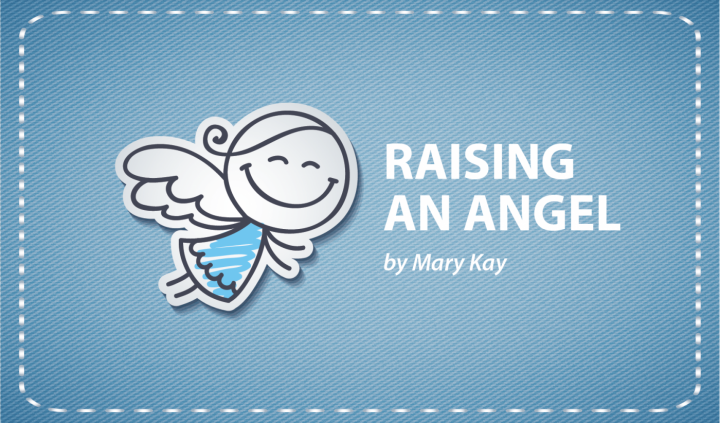A Compulsive Eating Solution: Ice Cream
Written by |

Every Fourth of July, Nathan’s has a hot dog eating contest. This year’s winner scarfed down 74 dogs within 10 minutes — a feat that leaves me feeling both awed and disgusted. First of all, why? Why would someone want to stuff themselves like a Thanksgiving turkey? For $10,000 that’s why. However, that is not enough money for me, and hot dogs would not be my choice, either.
The following day, while I was in the den writing, I realized Jess was nowhere to be found. The house was way too quiet. This could only mean one thing: She was being sneaky. Sure enough, I found her in the garage. She had discovered an unopened six-pack of Klondikes. As I was opening the door, our eyes met just as she popped the last piece of ice cream into her mouth. Busted.
The Klondikes had been hidden in the back of the freezer behind a package of pita bread and wrapped in a shopping bag. Jess had to root around before finding pay dirt. Typically, we don’t have ice cream for just this reason. This isn’t the first time I’ve found her being gluttonous. Years ago, she walked to a neighbor’s house and helped herself to the ice cream they’d stored in their outdoor freezer. Then one time, when she was much younger, she got up in the middle of the night because ice cream called her name.
“I have to trust you. How can I trust you when you are sneaky? You do realize this means no dessert for a week?” Then I reminded her of the fox that killed all our chickens. Where one chicken would have been enough food for a few days, he had murdered 10. The moral of the story: No one likes a sly, greedy fox.
Jess usually uses her Talker when she wants a snack. I wouldn’t have been so mad if she had offered to share. Maybe she thought I would say no, or she got caught up in the moment. Most likely, it was a little of both.
This solution might seem extreme, but maybe we should just let Jess eat as much ice cream as she wants? I’ve asked professional scoopers (it’s a great summer job for a student) how much they want to eat after working in the shop? Universally, they said they no longer crave it. I’m sure this would cure Jess, but I don’t want her to overload on sugar.
The only other solution is to enter an ice cream eating contest. It may not be as lucrative as a hot dog eating contest, but Jess is not in it for the money. She seems to think this is one of my better ideas. This may not help with compulsive eating. However, where food is readily available, it loses its hold over her, and she makes wiser choices.
To read more about our journey, visit my blog. We wouldn’t even have a story if Jess hadn’t found her AAC voice. Also, check Angelman Syndrome News on Fridays for my upcoming columns.
***
Note: Angelman Syndrome News is strictly a news and information website about the disease. It does not provide medical advice, diagnosis, or treatment. This content is not intended to be a substitute for professional medical advice, diagnosis, or treatment. Always seek the advice of your physician or other qualified health provider with any questions you may have regarding a medical condition. Never disregard professional medical advice or delay in seeking it because of something you have read on this website. The opinions expressed in this column are not those of Angelman Syndrome News, or its parent company, Bionews Services, and are intended to spark discussion about issues pertaining to Angelman syndrome.








RB
This was a good read thank you. From my current perspective (3 year old daughter recently diagnosed) to hear this story of your "sneaky fox" cheered me greatly as some days it seems that we are a very long way from our angel walking into a neighbours and being able to verbalise her high demands through a talker. Thanks again and keep up the good work.
Mary Kay
Sneaky means strategy. Jess knew if she did the crime, she'd do the time. The punishment was no big deal as long as she got what she wanted. She's particularly hard-headed and stubborn which meant we repeated the lessons often. Just because she's an Angel doesn't mean that she gets a pass. I'm afraid when someone is non-verbal it is so easy to assume that they "don't understand". We found she had difficulty with the motor planning, she knew how things worked. As for the Talker, we tried a half dozen AAC low and high tech over the years but she didn't find "the one" till she turned 21. At that point, everyone had given up. There are ways to support them with a Talker. Communication is really the most important thing for development (be verbal about everything and keep asking her questions). Finally, you may attempt things without success. Just keep trying and don't assume she "can't". The adage try, try and try again is very true. :)